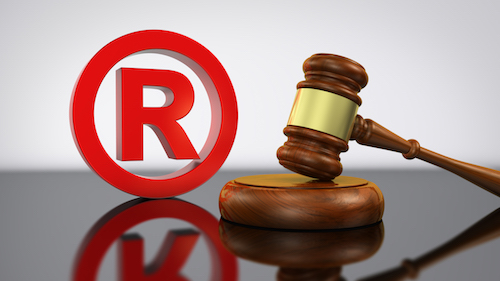“The Ninth Circuit noted that it had not yet addressed whether district courts have jurisdiction to cancel or alter trademark applications pending at the agency, or if a lack of bona fide intent to use the mark was a valid basis for such an order….. [The] majority answered both of these questions in the affirmative”
 On April 1, the U.S. Court of Appeals for the Ninth Circuit issued a ruling in BBK Tobacco & Foods LLP v. Central Coast Agriculture, Inc. affirming a lower court’s ruling that canceled trademark applications pending at the U.S. Patent and Trademark Office (USPTO). The Ninth Circuit panel majority determined that the district court had statutory authority to invalidate a trademark application for no bona fide intent to use over a dissent authored by U.S. Circuit Judge Patrick Bumatay, who argued that district courts lacked the authority to cancel trademarks before registration by the USPTO.
On April 1, the U.S. Court of Appeals for the Ninth Circuit issued a ruling in BBK Tobacco & Foods LLP v. Central Coast Agriculture, Inc. affirming a lower court’s ruling that canceled trademark applications pending at the U.S. Patent and Trademark Office (USPTO). The Ninth Circuit panel majority determined that the district court had statutory authority to invalidate a trademark application for no bona fide intent to use over a dissent authored by U.S. Circuit Judge Patrick Bumatay, who argued that district courts lacked the authority to cancel trademarks before registration by the USPTO.
BBK Tobacco sued Central Coast Agriculture (CCA) in the District of Arizona alleging that CCA’s “Raw Garden” cannabis product label infringed upon BBK Tobacco’s “RAW”-branded smoking products. BBK Tobacco’s complaint also included a petition to cancel several CCA trademark applications for a lack of bona fide intent to use the marks in commerce. While the district court entered summary judgment in favor of CCA on the trademark infringement claims, the court invalidated four of CCA’s trademark applications.
Underlying Trademark Registration Allows Courts to Consider Right to Register Application
The Ninth Circuit’s decision noted that it had not yet addressed whether district courts have jurisdiction to cancel or alter trademark applications pending at the agency, or if a lack of bona fide intent to use the mark was a valid basis for such an order. Interpreting 15 U.S.C. § 1119, which governs the power of courts over trademark registration, the Ninth Circuit majority answered both of these questions in the affirmative, leading it to affirm the Arizona district court’s invalidation of CCA’s pending trademark applications challenged by BBK Tobacco.
The Ninth Circuit majority found that district courts derived such authority from the first sentence of Section 1119, which provides that, “[i]n any action involving a registered mark the court may determine the right to registration, order the cancellation of registrations… and otherwise rectify the register with respect to the registrations of any party to the action.” Under the majority’s interpretation, the underlying registered marks asserted by BBK Tobacco permitted the district court to consider challenges to CCA’s trademark applications as part of the court’s authority to “determine the right to registration” and “rectify the register.” The panel majority found that this ultimately advanced the interest of resolving all registration disputes in a single action.
In assessing whether a lack of bona fide intent was a valid basis to cancel a pending trademark application, the Ninth Circuit majority noted that three other circuit courts and the Trademark Trial and Appeal Board (TTAB) had each answered that question in the affirmative. Citing to language from a 1982 decision by the U.S. Court of Customs and Patent Appeals (CCPA), the predecessor court to the Federal Circuit, the Ninth Circuit agreed that an opposing party is entitled to challenge an applicant’s right to trademark registration based on any statutory ground for doing so.
Judge Bumatay: Congress Has Not Authorized Court Review of Trademark Applications
Judge Bumatay’s dissent argued that the text, structure and context of the Lanham Act confirmed that federal courts have no authority to interfere with the USPTO’s examination procedures on trademark applications. Judge Bumatay noted that the Lanham Act, codified at Title 15 of U.S. Code, established exclusive authority at the USPTO to undergo thorough examination procedures, with appeals to U.S. district court only available once a trademark applicant has exhausted its appeals at the TTAB.
Further, Judge Bumatay contended that none of the authorities granted to federal courts under Section 1119 conferred any right to cancel trademark applications. Each of these explicit authorities were limited to trademark registrations, not applications, Judge Bumatay argued. Tracing a century’s worth of case law on federal courts determining the “right of registration,” the dissent noted that courts have determined this right independent of the adjudication of underlying trademark applications before other tribunals. Judge Bumatay also noted that the statutory provision that courts may “otherwise rectify the register” was significant as the term “otherwise” indicated that the authority to rectify the register must be read in light of the other authorities conferred by Section 1119. Thus, this language does not grant broad authority to courts to police the register.
The Ninth Circuit panel majority addressed some of the arguments raised on dissent by Judge Bumatay. The majority found that Judge Bumatay cited several cases that referred to the “right of registration” in the context of adjudicating an opposition to a trademark application. “[T]he attempt to separate the validity of an application from the validity of a registration ignores the definition of an application,” the panel majority held. While the majority opinion affirmed the district court’s cancellation of CCA’s trademark applications, in a separate memorandum the circuit court reversed the grant of summary judgment in favor of CCA on BBK Tobacco’s infringement claims, and affirmed the district court’s dismissal of CCA’s challenge to BBK Tobacco’s trademark registrations for alleged unlawful use.
Image Source: Deposit Photos
Author: NiroDesign
Image ID: 188971134

![[IPWatchdog Logo]](https://ipwatchdog.com/wp-content/themes/IPWatchdog%20-%202023/assets/images/temp/logo-small@2x.png)

![[Advertisement]](https://ipwatchdog.com/wp-content/uploads/2024/04/UnitedLex-May-2-2024-sidebar-700x500-1.jpg)
![[Advertisement]](https://ipwatchdog.com/wp-content/uploads/2024/04/Patent-Litigation-Masters-2024-sidebar-700x500-1.jpg)

![[Advertisement]](https://ipwatchdog.com/wp-content/uploads/2021/12/WEBINAR-336-x-280-px.png)
![[Advertisement]](https://ipwatchdog.com/wp-content/uploads/2021/12/2021-Patent-Practice-on-Demand-recorded-Feb-2021-336-x-280.jpg)
![[Advertisement]](https://ipwatchdog.com/wp-content/uploads/2021/12/Ad-4-The-Invent-Patent-System™.png)






Join the Discussion
No comments yet. Add my comment.
Add Comment